Learning and training have been essential components of healthcare since the earliest days of medicine. The ancient Greeks, for example, believed that medicine was both an art and a science and emphasized the importance of learning through observation and experience. Hippocrates, known as the father of medicine, wrote extensively about the need for physicians to continuously learn and improve their skills throughout their careers.
Over time, medical education has become more formalized, with the establishment of universities and medical schools. In the late 19th and early 20th centuries, medical education underwent significant changes with the introduction of the Flexner Report. Published in 1910, the Flexner Report was a comprehensive review of medical education in the United States and Canada. It emphasized the need for medical schools to be based on scientific principles and to provide students with a rigorous, standardized education.
As the field of medicine continues to evolve and new technologies emerge, healthcare professionals must keep up-to-date with the latest knowledge and skills to provide optimal care to their patients. However, there are several challenges associated with learning and training in healthcare.
One of the primary challenges is time constraints. Healthcare professionals work long hours and often have a high workload, leaving little time for learning and training. Attending training programs or taking online courses can be difficult, as it may require taking time off work or sacrificing personal time. Sometimes traditional online sessions are not as engaging as they should for deep learning.
Cost is another significant challenge. Healthcare training programs can be expensive, and not all healthcare professionals have access to the resources to pay for them. This can create disparities in training opportunities, as those with more resources may have access to better training programs than those without.
Access is another challenge, particularly for healthcare professionals in rural or remote areas. Not all healthcare professionals have the same access to face2face training programs, conferences, and other learning opportunities. Those in urban areas may have more opportunities to participate in training programs and attend conferences, while those in rural areas may have limited access.
Outdated training methods are also a problem in healthcare. Some training programs use outdated methods that do not effectively engage learners or provide them with the skills they need. This can lead to a lack of motivation and poor learning outcomes.
High turnover is another challenge associated with learning and training in healthcare. Healthcare professionals may leave their jobs after receiving training, which can be costly for healthcare organizations that have invested in their training. This can also create a gap in knowledge and skills if new healthcare professionals are not trained adequately to fill the gap left by those who have left.
Finally, technological challenges are another issue. Some healthcare professionals may lack the technical skills needed to participate in online training programs or use new technologies in the workplace. This can create a barrier to learning and training, as these professionals may struggle to keep up with the latest advancements in healthcare technology.
Aggressively working on these challenges is important to ensure that healthcare professionals have access to the training and education they need to provide high-quality care to patients. Healthcare organizations must find ways to make learning and training more accessible, cost-effective, and engaging to overcome these challenges. By doing so, they can help ensure that healthcare professionals have the knowledge and skills needed to provide the best possible care to patients.
One of the possibilities to overcome this issue is learning with new media. Digital learning, also known as e-learning or online learning, has become increasingly important in healthcare for a number of (good) reasons:
Access to up-to-date information: Healthcare is a constantly evolving field, with new research and treatments emerging all the time. Digital learning allows healthcare professionals to stay informed about the latest developments, and access the most current information and best practices. Digital learning allows for real-time updates and provides access to educational resources and training to healthcare professionals regardless of their location or time zone. This is especially important for those in rural or remote areas who may not have easy access to traditional in-person training.
Flexibility and convenience: Digital learning allows healthcare professionals to learn at their own pace, on their own schedule, and from anywhere with an internet connection. This can be especially beneficial for busy healthcare professionals who may not have time to attend traditional in-person training or education programs.
Cost-effective education: Traditional training and education methods can be expensive and time-consuming. Digital learning can offer a cost-effective and efficient way to deliver education to healthcare professionals, regardless of their location as it eliminates the need for travel and accommodation expenses and can be scaled to reach a larger audience.
Improved patient outcomes: Digital learning can help healthcare professionals develop new skills and improve their knowledge. This includes improving the accuracy of diagnoses, reducing the risk of medical errors, and improving the quality of care. Well-educated healthcare professionals – we know – can provide better care, leading to improved patient outcomes.
Gamification: Digital learning allows for gamification, which can increase engagement and motivation for learners. This can be especially important for complex topics that may be challenging to learn.
Increased collaboration and communication: Digital learning can facilitate collaboration and communication between healthcare professionals, regardless of their location. This can lead to better coordination of care, improved patient safety, and more efficient healthcare delivery. In addition digital skills can help healthcare professionals communicate more effectively with and from one another, which is critical for providing high-quality patient care.
To sum up: Digital learning has become an essential tool in healthcare education and training, providing accessibility, flexibility, cost-effectiveness, real-time updates, improved patient outcomes, and engaging learning experiences. There is not a question if to start but when to start with more digital education in healthcare.
Written by Lukas Drabauer from Alpha Medical Concepts (AMC)



